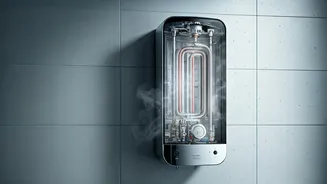Defining the Issue
Normal blood pressure, according to the American Heart Association, is defined as a reading below 120/80 mmHg. When systolic pressure is between 120–129
mmHg, with a diastolic reading below 80 mmHg, it is considered elevated blood pressure. Stage 1 hypertension is diagnosed when systolic pressure is between 130–139 or diastolic pressure is between 80–89. Stage 2 hypertension is diagnosed when the systolic pressure is 140 or higher, or the diastolic pressure is 90 or higher. A blood pressure reading of 150/90, as the user questioned on Quora, indicates stage 2 hypertension, which requires attention. This underscores the importance of knowing the ranges and consulting a physician for guidance and management.
Potential Health Risks
Uncontrolled high blood pressure can lead to severe health issues, potentially causing heart failure, coronary artery disease, and irregular heart rhythms. Furthermore, the elevated pressure can lead to a stroke through blood vessel damage. It can also damage the kidneys, potentially leading to chronic kidney disease or failure. Furthermore, high blood pressure can affect the blood vessels in the eyes, which can cause vision problems. There is also the risk of nosebleeds. These severe complications highlight the necessity of managing high blood pressure to prevent long-term health risks and maintaining overall well-being.
Lifestyle Adjustments
Lifestyle modifications are essential in managing blood pressure. Incorporating a low-salt, low-sugar diet can significantly help. Reducing saturated fats, staying well hydrated, and increasing the intake of vegetables and whole grains are also recommended. Regular physical activities like walking, cycling, or swimming are beneficial. In addition, managing stress through meditation or deep breathing techniques is equally important. Stress is recognized as a major factor in high blood pressure. Limiting alcohol and caffeine intake is also advisable as part of a holistic approach.
Medications and Monitoring
Medications, when combined with lifestyle changes, can help bring blood pressure under control and reduce the long-term risks. It's crucial to note that this is a medical decision to be made under medical supervision. Once your blood pressure is well managed, a doctor may reassess and potentially reduce or discontinue the medication. Regular monitoring is key to this process. It’s crucial to have regular check-ups and to follow the guidance of a qualified healthcare professional. Managing high blood pressure is like having an insurance policy—it helps prevent future health risks.













